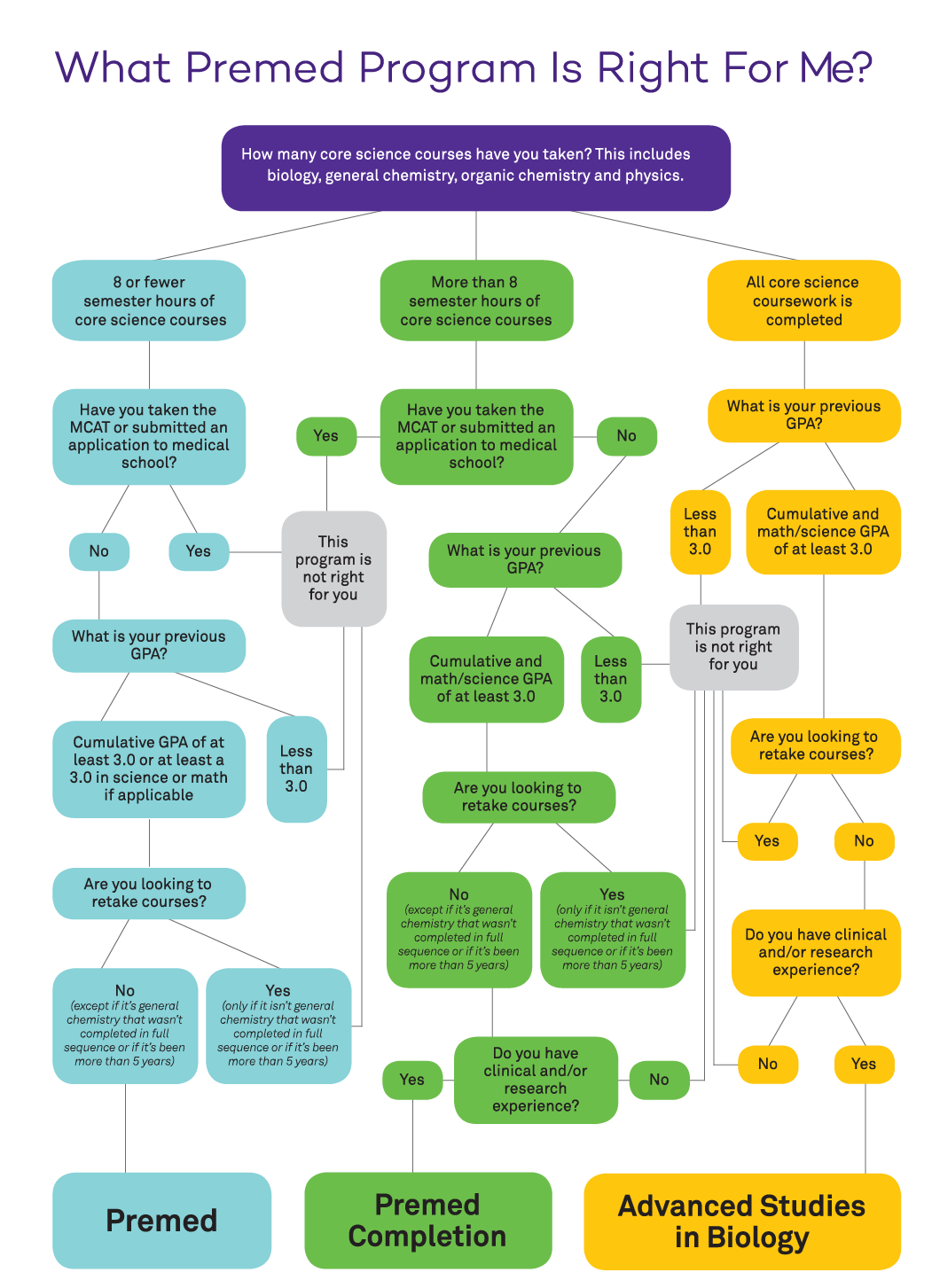Advanced Studies in Biology for the Health Professions
Advanced Studies in Biology for Health Professions draws students from a wide range of backgrounds who are interested in careers in medicine, physical therapy, physician assistant studies or other health careers. Students complete four to eight advanced undergraduate courses in biology to help them prepare for professional programs.
START MY APPLICATION Request InformationIs the Advanced Studies in Biology program right for me?
The School of Professional Studies offers a several program options for students who need to complete the required science courses necessary to pursue graduate level study in the medical field. Expand this page using the "Explore" link below to see which of our program options is the best fit for your background. Please reach out to our Enrollment Advising team if you have any questions before you start the application process.
About Advanced Studies in Biology for the Health Professions
Advanced Studies in Biology Required Courses
Select at least four courses** from the following:
- BIOL SCI 302 Fundamentals of Neurobiology
- BIOL SCI 308 Biochemistry
- BIOL SCI 312 The Evolutionary Biology of Human Anatomy, Health and Disease
- BIOL SCI 313 Human Anatomy
- BIOL SCI 315 Advanced Cell Biology
- BIOL SCI 316 Human Structure and Function
- BIOL SCI 317 Regional Human Anatomy Lab (.34 units*)
- BIOL SCI 318 Advanced Human Physiology
- BIOL SCI 327 Biology of Aging
- BIOL SCI 328 Microbiology
- BIOL SCI 342 Evolutionary Processes
- BIOL SCI 355 Immunobiology
- BIOL SCI 390 Advanced Molecular Biology
*BIOL SCI 317 is .34 units. Students electing to take BIOL SCI 317 would need to take a minimum of four other courses to earn the certificate.
**Please note that this is not a grade enhancement program, and thus students are not allowed to retake courses that were previously completed at another university as part of this certificate program. Students applying to this program should select courses that they have not previously attempted.
Courses in biological anthropology may be applied to the certificate, with the approval of the Assistant Dean of Undergraduate and Professional Studies.
In addition to the program requirements, students have the option to enroll in any of the courses offered at SPS (e.g., calculus, psychology, bioethics). However, elective courses will not count toward the minimum of four courses for the certificate.
Additional Information
Students who need to complete the introductory core prerequisites for medical or professional health graduate programs may wish to consider one of the Professional Health Careers programs.
Advanced Studies in Biology Tuition
Post-baccalaureate students at Northwestern's School of Professional Studies pay per course. For more information about financial obligations and tuition, please visit the Tuition page.
Admission for Advanced Studies in Biology
In addition to completing an online application, you'll also need to submit a few supplemental materials. A list of requirements for admission including application deadlines and tips on how to apply can be found on the Admission page.
Advanced Studies in Biology Registration Information
Whether you're a first-time registrant or current and returning student, all students register using our online student registration and records systems. Important information about registering for courses at SPS, including registration timelines and adding or dropping courses in which you are already enrolled, can be found on the Registration Information page.
Advanced Studies in Biology Pre-Health Professional Student Group
Learn how students support one another through forums, resources and social networks on the Advanced Studies in Biology Pre-Health Professional Student Group page.


